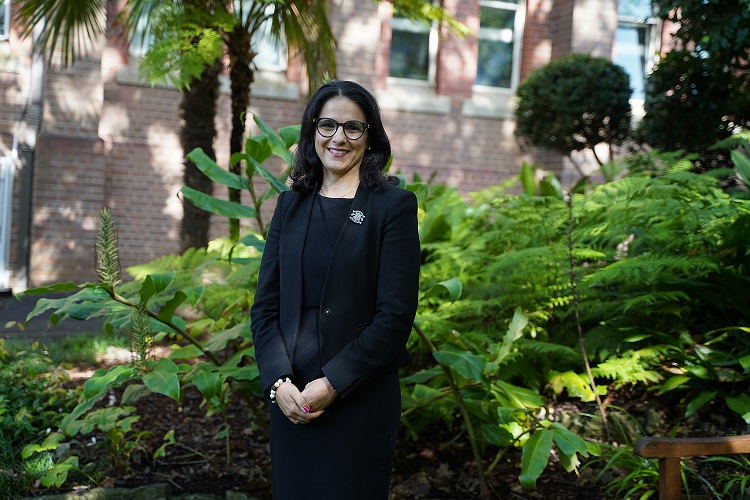
Marina Ugonotti had only been Loreto Normanhurst’s principal for a mere 12 months when the Covid-19 pandemic plunged schools into an unimaginably complex crisis. But while Ugonotti might have been new to this particular role, she was no stranger to school leadership.
In addition to her prior role as Deputy Principal at Loreto Normanhurst, Ugonotti had been a teacher and school leader at three Catholic independent schools for girls, and had built up an impressive array of qualifications, including Master of Educational Leadership, Master of Theology, Bachelor of Laws, Bachelor of Arts and a Graduate Diploma of Education.
Ugonotti said the school’s strategy for maintaining calm heads and continuity of teaching and learning both throughout and after the most challenging periods of the pandemic has centred first and foremost on effective communication between teams and individuals.
“Communication is a critical leadership tool at all times, however never more so than in times of crisis. Early in 2020 where so much was unknown, people turned to the school for guidance, surety, the way forward,” Ugonotti told The Educator.
As fast paced as it was across the heightened times of lockdown, and pre lockdown in 2020 and 2021, the school consistently took the approach to ‘haste slowly’.
“This was relative of course to the insane pace and context of flux within which we found ourselves,” Ugonotti said.
“Taking time to discern the way of proceeding, based on known facts, our values and what we know of our community allowed us to lead the community through two of the most remarkable years in its history.”
Ugonotti said a curiosity and openness to try things allowed creativity to flow during these testing times.
“Teachers applied what they know makes for good learning and what they know about their students in new and novel ways,” she said.
“When creativity is viewed in this way – applying what is known in new ways, drawing from different domains in order to solve the problem at hand – you can see how we were able to remain nimble in adjusting to all the changes being hurled at us, while keeping our eye firmly on our values and approach to holistic learning and the growth of the whole child.”
School leadership is changing, and fast
As Australian education navigates new phases of the COVID-19 pandemic, alongside important reforms taking place at the state and federal level, Ugonotti said leaders must remain cognisant that schools don’t exist in a vacuum.
“Schools don’t, and can’t, exist in a vacuum. The focus of schools, and indeed of education, is the flourishing of human life. Schools therefore exist as part of an interdependent social web, and because of this interconnectedness they are constantly influenced by the changes occurring in families and society at large,” she said.
“There has been rapid social change in families and communities over the years and increasing expectation that schools will step into the space of responding to that change.”
Alongside this, Ugonotti says there has been a decrease in trust in other social organisations or institutions over time.
“This means that families, students, staff turn to the school for their compass in life more broadly. Where there is a leadership gap in society or in the broader community, it is to the school where people turn for guidance, reassurance, direction, surety and certainty – for a path to follow,” she said.
“Schools provide young people with a safe community where they experience connectedness and belonging and provide families a source of connection and identity also.”
Ugonotti said where previously other trusted sectors of society may have provided the support – whether that be the family, the parish or religious community, trusted community organisations such as sporting institutions – these responsibilities are increasingly falling on schools.
“This is beyond what has been asked of schools from an instructional or curriculum perspective. I mean more about stepping into the role of allied health practitioner, police liaison, grief counsellor, negotiator,” she said.
“Just as the role of school in the context of modern life has changed, so too has that of those leading our school communities.”
Ugonotti said principals need to not only ride those waves of social change with their community, but also need to look around the corner and anticipate the impact which forces of change will have on their school community in the future.
“We play an increasing role in accompanying students and families through the challenges of modern life. It is a unique role that of leading a school community, with so many lives being in your responsibility and so many vested stakeholders, and so the role has high cognitive and emotional demands,” she said.
“By nature of the unique role and the experiences one gathers over the years that strengthens the muscles of EQ and IQ, their commitment to and understanding of children and young people, I do believe principals meet these demands exceptionally well.”


